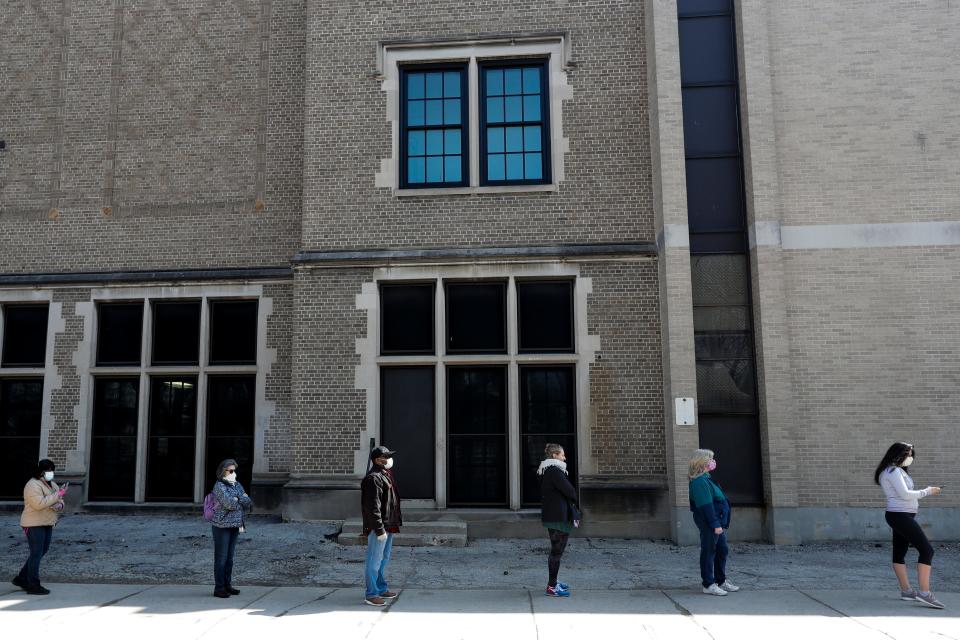Coronavirus: In times of disease, divisions always fester
Throughout our history, we have been inclined to consider epidemic diseases as coming from elsewhere, brought in by outsiders. Fear of the other — different nationalities, races and religions — persists today, even though we have far more knowledge about the pathophysiology of disease. As the COVID-19 pandemic evolves, we are seeing worrisome signs in this country.
New rapidly spreading diseases have always elicited fear and anxiety. When the causes of illness and mechanisms of spread were obscure, suspicions often settled on disfavored groups. In the 14th century Black Death, Jews were blamed for starting and spreading the outbreak, and many were murdered or exiled. The poor and foreigners have often been stigmatized as unhygienic infection carriers.
HOTLINE: Share your coronavirus story
In 19th century America, the threat of cholera was often cited by those who wanted to restrict immigration. During an 1892 cholera epidemic, President Benjamin Harrison referred to immigrants, especially Russian Jews, as a “direct menace to public health.” An outbreak of plague in 1900 that erupted in San Francisco’s Chinatown led to anti-Asian immigrant sentiment.
Stigma spread right along with the diseases
Targeting the other continued, even after medical advances clarified the causes and mechanisms of spread of epidemic diseases in the latter half of the 19th century and early 20th century. The Nazis, claiming their ideology was science based, portrayed Jews as vermin and infectious agents that had to be eliminated to ensure the health of the body politic. Gay people were stigmatized during the AIDs crisis, even though it was clear that the disease could not be spread through casual contact.

Some countries are trying to portray the COVID-19 pandemic as a foreign plot. Chinese government spokesmen have accused the U.S. military of starting the pandemic in China. Iranian officials claim the coronavirus is a plot by America and Israel.
COVID-19 is pitting one area of the United States against another. Rural residents have made it clear in newspapers and online that they would prefer it if their city brethren stay home and not come to ride out the storm in their second homes. Rhode Island's governor issued an executive order to position police at the border to pull over cars with New York plates and order them into quarantine for 14 days. Violators of the quarantine order were to be subject to fines and possible jail time. The governor, under threat of legal action by New York, has since replaced that order with a new order to mandate all travelers with out of state plates undergo a 14-day self-quarantine enforced by the National Guard.
Florida’s governor has issued a similar order targeting travelers from New York, Connecticut, New Jersey and Louisiana. Several other states have issued orders targeting travelers from specific states, and a number of others are targeting all out-of-state visitors.
Fighting against division: How civic groups are using online tools to fight social isolation in pandemic
To some extent, these directives represent legitimate health concerns. After all, the Centers for Disease Control and Prevention has issued a domestic travel advisory urging people in New York, Connecticut and New Jersey to “refrain from non-essential domestic travel for 14 days.” But heavy-handed government edicts seem at odds with the level of the threat.
Are these measures really helping?
When Rhode Island's governor issued her original order, New York State had 38,000 confirmed cases, 22,000 of which were in New York City. New York State has nearly 20 million people with 8.5 million in the city. The chance that any random car targeted for “driving while being a New Yorker” would contain a person infected with coronavirus — even accounting for likely undercounting and the subsequent doubling of coronavirus cases — was minuscule.
Less restrictive and stigmatizing alternatives were available. But there was no suggestion that New Yorkers be screened for symptoms or tested, just quarantined. Florida has set up checkpoints to limit travelers from outside but didn't do anything to limit travel within the state until just a few days ago, despite the fact that coronavirus cases are heavily concentrated in southern Florida, in and around Miami.
Older people aren't all the same: Don't lump seniors together on coronavirus
While residents of rural areas are legitimately concerned that an influx of coronavirus cases could overwhelm their limited medical facilities, it is hard to ignore long-standing resentments that year-round residents of rural areas have for second homeowners. Hamptons residents have long complained about New Yorkers’ attitudes. Now they complain that wealthy city residents are selfishly coming to their areas, cleaning out store shelves and exposing the locals to disease.
Hopefully, the pandemic will subside before these atavistic impulses spin out of control. Dealing with one unseen enemy is hard enough.
Dr. Joel M. Zinberg is an associate clinical professor of surgery at Mount Sinai Icahn School of Medicine. From 2017-2019 he was formerly general counsel & senior economist at the Council of Economic Advisers.
You can read diverse opinions from our Board of Contributors and other writers on the Opinion front page, on Twitter @usatodayopinion and in our daily Opinion newsletter. To respond to a column, submit a comment to letters@usatoday.com.
This article originally appeared on USA TODAY: As diseases like coronavirus spread, so do prejudices
